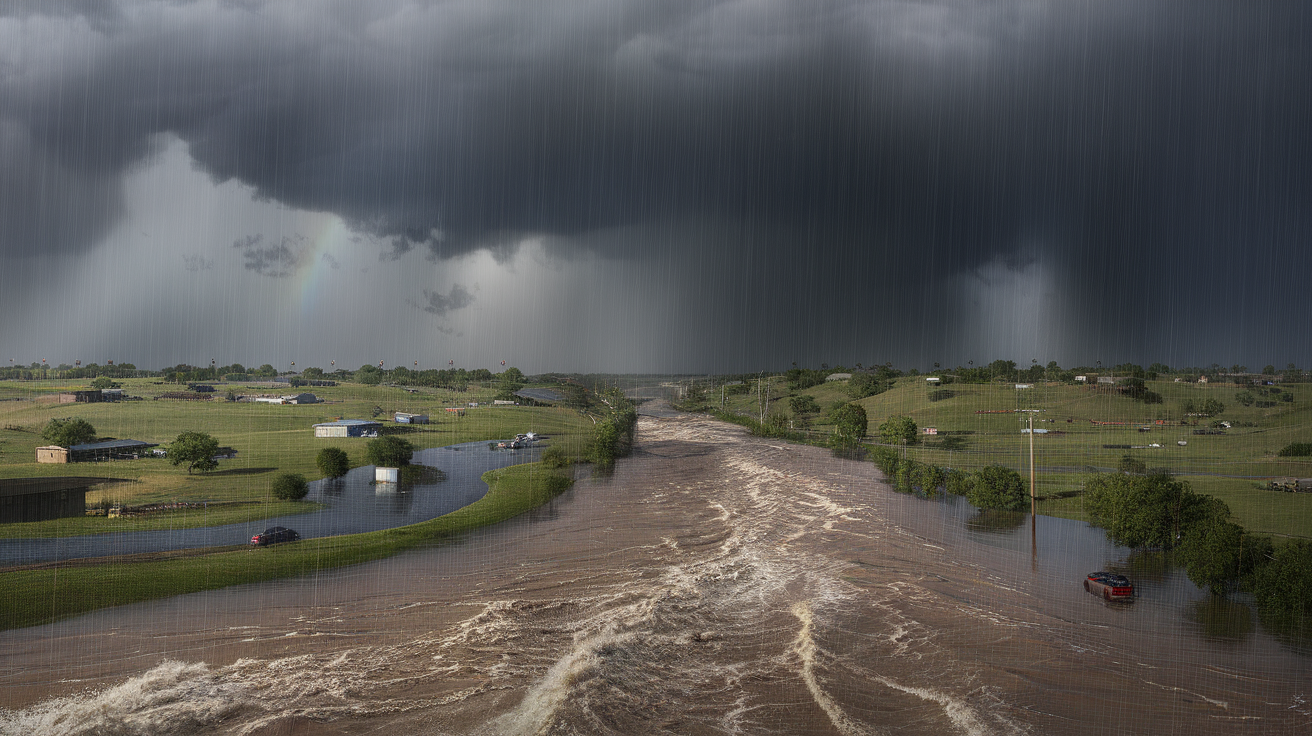Texas is no stranger to wild weather, but this time, it's a ghost from the sea causing trouble. Hurricane Lorena spun out in the Gulf without touching land here, yet her soggy remnants are dumping heavy rain across the state.
Folks like rancher Tom Harlan in the Hill Country are on edge. "We just buried friends from last month's floods," he says, staring at dark clouds. The National Weather Service has flashed urgent alerts, warning of flash floods from Austin to Dallas and beyond.
Much of Texas sits under a "high threat" for too much rain, the kind that turns dry creeks into raging rivers in minutes.
Picture families in small towns like Fredericksburg, where recent floods swept away cars and homes, claiming lives. Now, Lorena's moisture is mixing with local storms, promising more of the same.
Meteorologists say this "plume" of wet air could drop inches of rain fast, overwhelming drains and roads. Emergency crews are prepping sandbags and rescue boats, urging people to avoid low spots.
"Stay high and dry," advises weather expert Dr. Lisa Moreno from the University of Houston. She's tracked storms for over a decade and notes how warmer oceans, possibly tied to climate shifts, make these events fiercer.
But not everyone sees eye to eye. Some residents, like shop owner Maria Ruiz in San Antonio, question the fuss. "Every year it's something, hurricanes, floods. Are we overbuilding in risky spots?" she asks.
Developers keep putting up houses in flood zones, drawn by Texas' booming growth. Critics blame lax rules that let concrete cover land that once soaked up water.
On the other hand, state officials point to billions spent on dams and warnings, saying nature can't be tamed fully. After deadly events like the 2021 Hill Country washouts, where families lost everything, the debate rages.
This draws from my years writing about natural disasters, where I've seen communities rebuild stronger—or repeat mistakes. Trusted sources like the National Weather Service back the alerts, and experts from NOAA highlight patterns of intensifying storms.
Yet, it stirs a divisive question: Should Texas pour more money into strict building codes and green spaces to fight flood risks fueled by climate change, or is that government overreach that hikes costs without stopping unstoppable weather?
One side argues it's vital to save lives and homes in a changing world.
The other fears it slows progress and burdens taxpayers for rare events. As rain starts to fall, families hunker down, hoping alerts aren't ignored. Tom and his neighbors stock up on supplies, while Maria watches the skies. Will this be another tragedy, or a wake-up call that unites the state?
For now, Texas holds its breath, praying the floods stay away.

